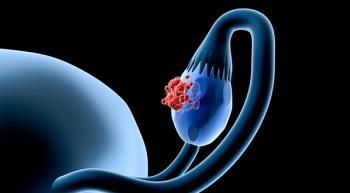
Monitoring for Infection-Like AEs Is Essential for CIML NK in GI Cancers
While CIML natural killer immunotherapy can result in infection-like reactions, required prior chemo may cause infections, shared Wenxin (Vincent) Xu, MD.
Cytokine-induced memory-like (CIML) natural killer (NK) cell immunotherapy combined with interleukin-2 (IL-2) can be accompanied by infection-like adverse effects (AEs) in patients with kidney or urothelial cancer, according to Wenxin (Vincent) Xu, MD. In addition to these AEs, patients may experience lowered blood counts because of required lymphodepleting chemotherapy preceding investigative treatment.
In an interview with Oncology Nursing News at the 2025 Kidney Cancer Research Summit,
The trial requires that patients receive apheresis to collect NK cells, followed by predetermined standard-of-care lymphodepleting chemotherapy, then CIML NK therapy.
While CIML NK immunotherapy causes infection-like AEs such as fever, increased heart rate, and lower blood pressure that are commonly associated with immunotherapies, the preceding lymphodepleting chemotherapy may itself cause infection along with the catalog of AEs typically associated with chemotherapy. Risk of infection is especially important to monitor when patients are undergoing this type of therapy due to the combination’s suppression of patients’ immune systems.
Transcript
The actual protocol for this trial is that patients first undergo apheresis for collection of their immune cells, then undergo chemotherapy to make room in the immune system, then receive the cells, followed by IL-2. Each of these steps can have side effects.
Specifically, immune cell collection is comparable to a large blood collection. Patients can have temporary decrease in their circulating cells, which usually only lasts a few hours to a couple of days. Patients can sometimes have tingling from the cell collection.
The lymphodepleting chemotherapy is intended to suppress the immune system and make room for cells, so patients will certainly have lower blood counts. Patients have regular chemotherapy side effects, including fatigue, nausea, irritation or bleeding of the bladder, and increased risk for infection. That’s really a major one, because we’re intentionally suppressing the immune system.
Because the
This transcript has been edited for clarity and conciseness.
Reference
Memory-like natural killer (NK) cell therapy in patients with renal cell carcinoma or urothelial carcinoma. ClinicalTrials.gov. March 19, 2024. Updated June 11, 2025. Accessed July 23, 2025. https://clinicaltrials.gov/study/NCT06318871?id=NCT06318871&rank=1#study-record-dates
Newsletter
Knowledge is power. Don’t miss the most recent breakthroughs in cancer care.
























































































